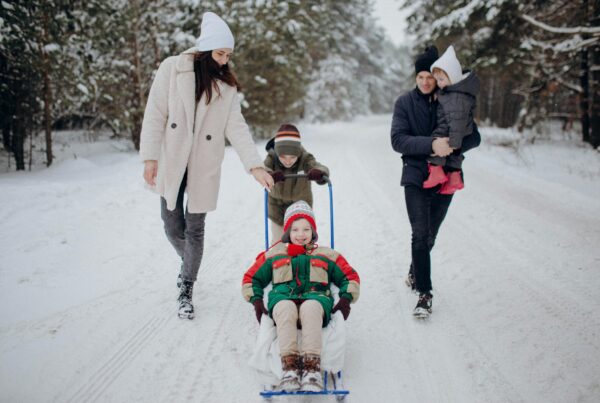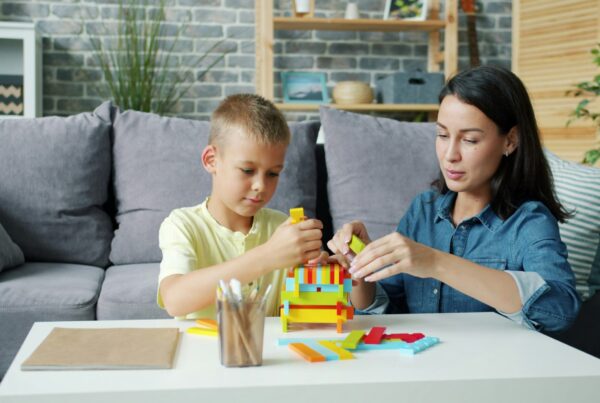Helpful Dining Out Tips for Children with Autism
By Terri Gowey, MS, BCBA, LBA, Chief Operating Officer at Chileda
Going out to eat at a restaurant for any family can be challenging. Having a child with Autism, ADHD, and other cognitive and behavioral challenges can be difficult. Eating out at a restaurant requires many skills including waiting, choosing and communicating the meal choice, sitting through a meal, appropriate voice volume, and general table manners. Some children may also have sensory aversions to foods, crowded environments, and noises.
Tip #1 – Practice at Home
- Eat together as a family during meal times.
- Sit a few minutes before the meal to practice waiting.
- Wait to leave the table until everyone is finished eating.
- Use communication tools at home that will be used in the community for ordering. Helpful tools are Picture Exchange Communication Systems (PECS), iPad communication systems such as Proloquo2go or Tech Talk, Voice Output Devices, and Choice Boards.
- Have a “restaurant night” at home and create a menu to practice ordering. Using a visual schedule that includes each step may be helpful for some autistic children. For example: stand in line, order meal, sit down, wait for meal, eat meal, throw garbage on trays away, go to vehicle.
Tip #2 – Plan Ahead
- Call the restaurant ahead of time for a reservation or to identify times that aren’t as busy.
- Pick a day and time that is less busy, especially if this is your first time to the restaurant.
- Start at a restaurant that your child will have the most success at based on their skills. Some children may do best starting at fast food restaurants because of the shorter wait times.
- Let the manager know if you need any special accommodations (special diet, seating to avoid sensory aversions, etc.).
- Become familiar with the restaurant (e.g. bathrooms & exits) prior to visits.
Tip #3 – Go Prepared
- Bring items that will help decrease sensory overload and keep your child busy while waiting. Examples include sound muffling headphones, favorite toys, puzzles, iPads, etc.
- Carry any communication tools or schedules that your child has practiced using at home.
- Review expectations prior to going to the restaurant. Pictures of the restaurant and visuals of another child or character ordering, waiting, and eating at the restaurant can be used to create a booklet to read to your child, also called a social story. At Chileda, social stories are used to introduce changes, teach skills, and prepare for upcoming events.
- Provide specific praise when your child is doing what is expected, for example, “You are doing a great job sitting nicely and waiting for your food.” Bring preferred items or small rewards (reinforcers) if needed.
Even with the best preparation and planning things don’t always go as expected. You may need to go take a break in a quiet environment or be prepared to leave quickly. Don’t be discouraged if things don’t go as expected. With more exposure and practice your child will gain the skills to eat out. If you are a restaurant owner, waitress, waiter, or eating out with your own family and a child yells loudly, paces the room, stands up and spins, or takes food off your plate, please be patient. This child is working on learning these skills. A smile, offering a helping hand, and just being understanding can make a world of difference to families, caregivers and the child.
Terri Gowey is a mother to three children, the Chief Operating Officer at Chileda in La Crosse, and an expert in planning ahead. She holds a Master of Science degree in psychology with an emphasis in Applied Behavior Analysis and is a Board Certified Behavior Analyst (BCBA) and Licensed Behavior Analyst in Wisconsin. She has over 20 years of experience working with children with cognitive challenges and behavioral challenges.
*The information provided on this blog is for general informational purposes only and does not constitute medical or professional advice. Chileda, Inc. strives for accuracy but is not responsible for errors or omissions. Chileda Inc. disclaims any liability for any losses or damages arising from the use of this blog site.



